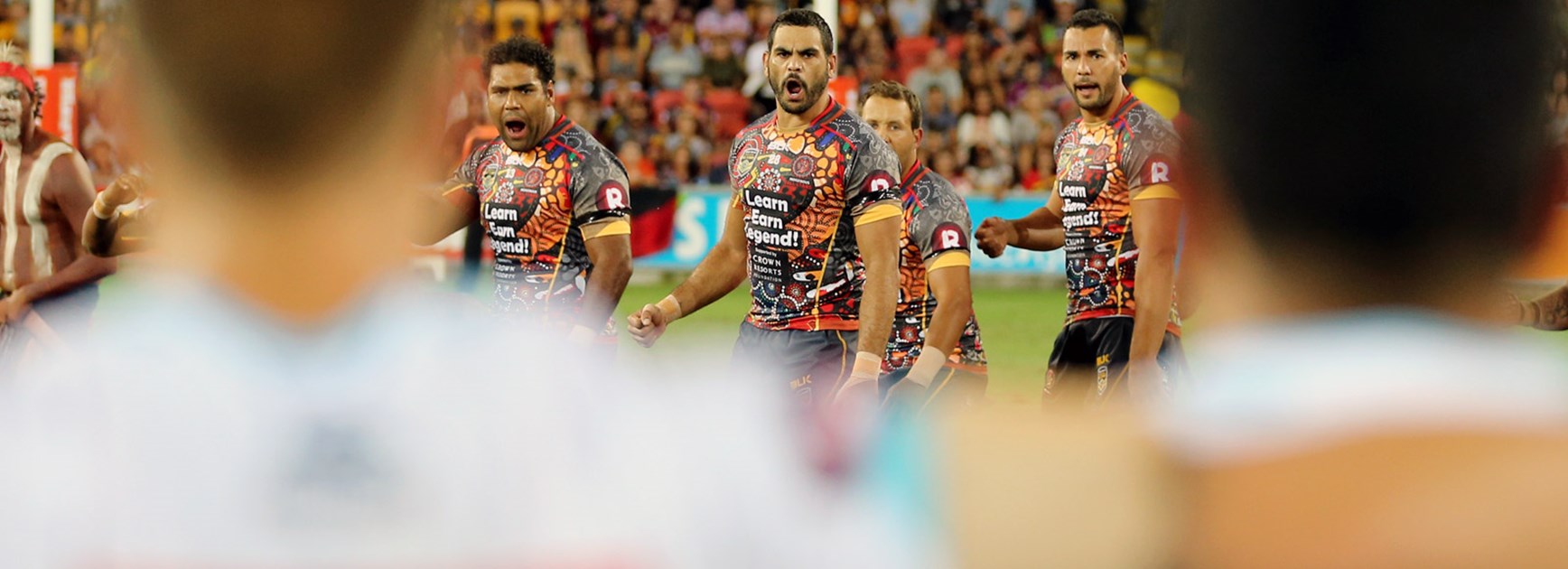
Growing up in Armidale in the 1980s, Dean Widders never thought he'd live to see an Indigenous Round in the NRL.
But now that he's witnessed the powerful effect it has had on the community, the former NRL star wants every week to be like this.
Widders is an NRL education and welfare officer and has seen first-hand the importance rugby league has played in closing the gap between Indigenous and non-Indigenous communities.
According to Widders, the benefits of Indigenous Round in rugby league have been seemingly endless.
"For a lot of us it's a place where we get most of our positive things from," Widders told NRL.com.
"It's a thing that can bring our communities together for the better, it's a thing that can give our young kids aspirations and positive role models, and for a lot of people it's a chance to heal from past wounds and past traumas.
"For me it's a healing opportunity for Aboriginal and Torres Strait Islander people. The game heals us and helps us get over things and helps us look at the positive things in the future.
"It's a way of sending a message to the rest of the country. It's a way of showcasing how we can embrace Indigenous culture, how we can – as a whole nation – come together and heal as one."
The former Roosters, Eels and Rabbitohs utility forward detailed the importance of programs such as the School to Work initiative as ways in which rugby league has helped contribute to the betterment of the Indigenous community.
"The School to Work program has helped thousands of Indigenous students from all over the country go from school into employment or further education," he explained.
"The NRL's success percentage in that is around 92 per cent. Those kids that are going through those programs are finishing school and all up 98 per cent of them going on to try to find further education or work which is well above the national average.
"It's a great achievement for Indigenous kids because the percentage sits somewhere around half of Indigenous kids going on to finish year 12, but in this great program rugby league uses the game as a vehicle to drive those messages to motivate them to finish school."
Widders lamented the disparity between the opportunities afforded to him as a student compared to today's generation, but saw the current socio-educational climate as a step in the right direction.
"When I went to school there were no positive things about Indigenous people taught at our school or spoken about in the media," he recalled.
"But things like the All Stars have allowed Indigenous and non-Indigenous people to come into schools to highlight what we're doing, so in that respect rugby league is sending some great messages."
Widders – who looked up to players such as Cliff Lyons and Arthur Beetson when he was a child – said today's crop of Indigenous stars are possibly the most important tool the NRL has in connecting with students.
Superstars such as Greg Inglis and Johnathan Thurston highlight the impact Indigenous talent has on the game, and Widders wants students to see that it is possible to accomplish anything as long as they apply themselves.
"It's inspiring for young kids to look up to them and see these guys achieving their goals and living their dreams," Widders said.
"They showcase the benefits of achieving things through discipline, dedication, working hard and all those sorts of things.
"It also shows the rest of the country that there are Indigenous men achieving great things and showing the positives of our culture.
"For a lot of people the only time they see or hear an Indigenous person is when they see them on television playing rugby league."
Widders will spend Indigenous Round travelling to clubs to outline the significance of the week. He hopes the work done by today's generation will eventually lead to a significant cultural change in a decade's time.
"I'm going to get around to the clubs to present to them the importance of the round and some of the things they can celebrate," he explained.
"I'll be talking to staff and players and just telling them about all the positive things that we continue to achieve and how we have this great opportunity right now to do even more.
"The thing I'd like to see in 10 years' time is a place where Aboriginal culture is a thing we all celebrate, something that we're all proud of, and something that we'll all look at as being part of the story of this country. I think it's important that we try to correct the wrongs of the past and try to move forward together."
